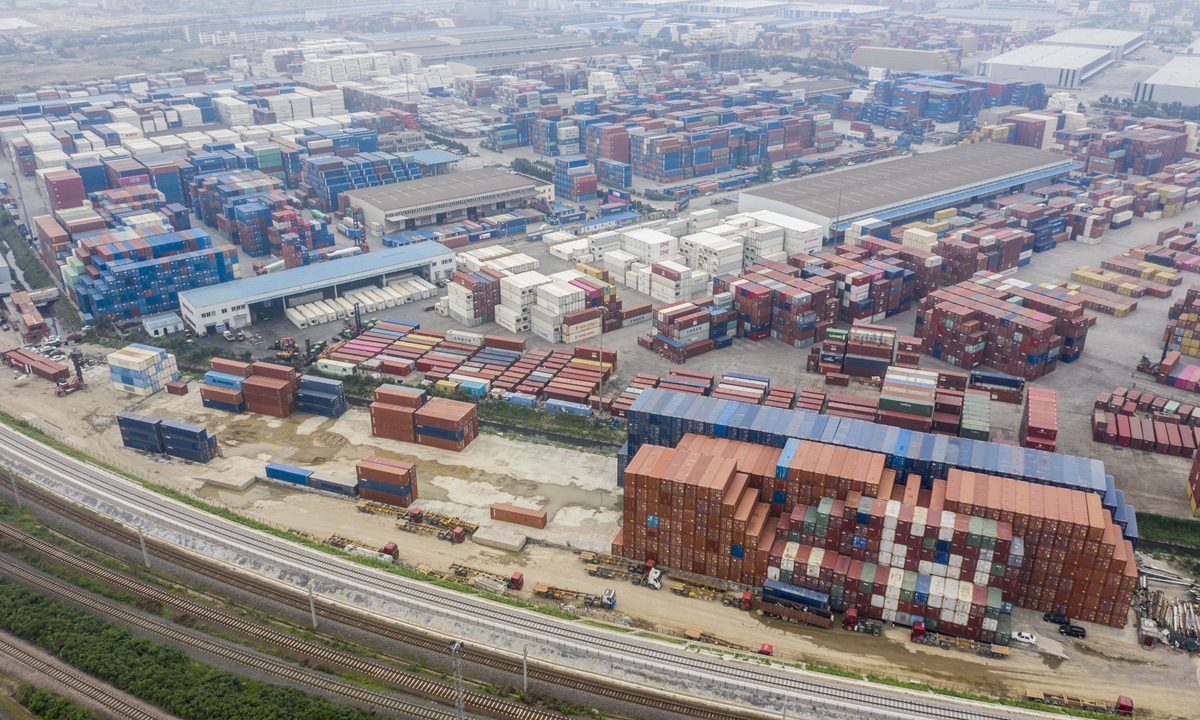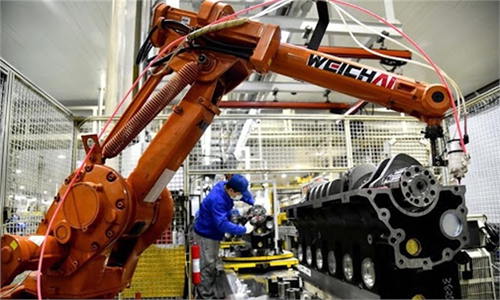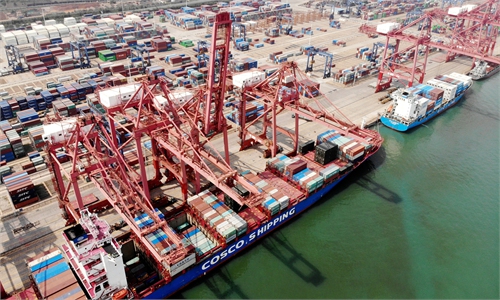China improves business environment to spur economy
Optimizing the commercial climate

Photo: cnsphoto
Despite the severe impacts of the COVID-19 epidemic, some international giants still choose to increase investment in the lucrative Chinese market, with the country seeing sustained recovery from a hard-hit economy.
The world's second-largest economy is staunchly improving its business environment, nurturing fertile ground for the growth of various companies and injecting vitality into the domestic and global economy.
Wider opening-up commitment
US agribusiness giant Cargill on Wednesday announced the opening of the Asia Pacific headquarters of its agricultural supply chain in Shanghai, further demonstrating the company's continued commitment to China's market.
"We are grateful for the strong support from the Shanghai municipal government with this strategic location," said Robert Aspell, president of Asia Pacific for Cargill. He added that Shanghai would play a crucial role in the company's efforts to better serve customers in both China and other parts of the Asia Pacific region.
"We will unswervingly welcome international enterprises and investors to invest and run businesses in Shanghai. We will create a world-class business environment and expand development space for all enterprises," said Gong Zheng, mayor of Shanghai, during a video call with Cargill.
In spite of the epidemic, foreign investors have increased investment in Shanghai in a bid to cash in on the business opportunities in China. The city received $10.28 billion in foreign investment in the first half of 2020, up 5.4 percent year-on-year.
While foreign enterprises beef up presence in the Chinese market, domestic firms have accelerated business resumption as the epidemic has waned.
Tianjin Golden Wheel Bicycle Group Co saw its exports in the first half of 2020 recover to the level of the same period last year.
"China continues to create an open, fair, just and non-discriminatory business environment, offering more opportunities to the world, thus helping stabilize the unsettled global economy amid the COVID-19 pandemic. This is a key factor for global companies to find the Chinese market attractive," said Quan Heng, secretary of the leading Party members' group at Shanghai Federation of Social Science Associations.

Photo: cnsphoto
Comprehensive and targeted reforms
According to the World Bank's Doing Business 2020 report, China made significant progress in the 2005-2020 period, compared to any other large economy, in terms of facilitating the ease of doing business.
"We were happy to see measures including trimming the negative list, optimizing business environment and strengthening intellectual property protection," said Ker Gibbs, president of the American Chamber of Commerce Shanghai.
Since 2018, Shanghai has taken 286 targeted measures to improve the business environment, unveiling more than 70 reform policies and launching over 20 new public service systems, according to the municipal government.
Reforms have also been adopted in other parts of the country.
"Since Tianjin implemented the 'shipside delivery' reform to reduce customs clearance time, a container of imported goods can be picked up within three hours, saving some 300 yuan (about $43) per day," said You Tingguang, manager with a Tianjin-based trading company.
Local authorities have also taken a number of measures to help businesses tide over the uncertainties caused by the epidemic. According to the Tianjin Golden Wheel Bicycle Group Co, thanks to the use of cross-border B2B e-commerce, piloted by 10 customs authorities, the company received approval for doing business in just one day, buying it more time to seize business opportunities during the epidemic. "We have also received subsidies for water, electricity consumption and employment stabilization, as well as low-interest loans to help ease operation costs," said the group's general manager Yang Yufeng.
Technology driver
According to the World Bank report, the proliferation of e-government services is one of the key factors driving China's success in improving its business environment.
Wang Qingyuan, 30, who owns a hair salon, recently applied to cancel the license of her shop's old address - finding the process far more convenient than in the past.
Upon reaching the government service center at Beijing's Daxing district, she logged into a mobile app through Alipay. The app ran facial recognition using her cellphone camera, enabling the staff to check all her information instantly.
Corporate information and certificates are now digitally stored and can be checked online. With the application of blockchain technology, the data cannot be tampered with, thus assuring authenticity.
In Beijing, some 140 e-government service centers have adopted blockchain technology, which can reduce paper use by an average of 40 percent.
Shanghai officially launched a comprehensive portal for administrative services in October 2018, which utilizes technologies such as blockchain, AI and big data.
Since its launch, the service has registered more than 29 million individual users and 2 million legal entity users. The portal has handled over 60 million cases.
"China leads the world in the application of blockchain technology," said Huang Zhen, a professor with the Central University of Finance and Economics. "The technology is widely used, not only in the financial sector, but also in government services, becoming a key driving force for improving the business environment."
Xinhua - Global Times


